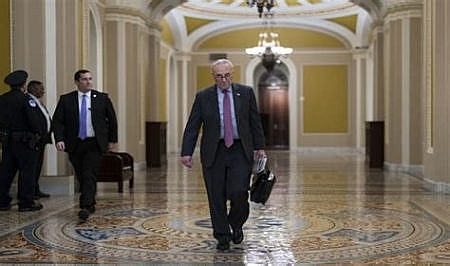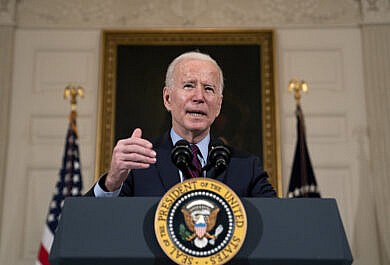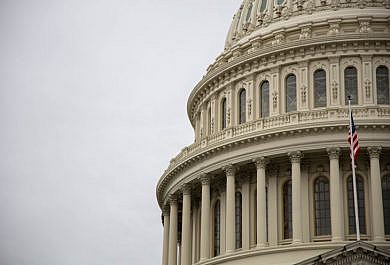The Senate voted to repeal the 1991 and 2002 Authorizations for Use of Military Force (AUMF) in Iraq by a 66-30 margin with bipartisan support.
Summary
The Senate voted to repeal the 1991 and 2002 Authorizations for Use of Military Force (AUMF) in Iraq by a 66-30 margin with bipartisan support.
- The 1991 and 2002 AUMFs were passed in the run-up to the Persian Gulf War and the Iraq War, respectively and have been used to justify military actions in the region beyond the initial scope of the war powers measures.
- An authorization of use of military force is not a constitutionally mandated declaration of war but rather a “kind of a war declaration-light, without the more drastic domestic actions that come with formally declaring the nation at war.” Congress has not formally declared war since World War II.
- If the measure passes the House, the White House has confirmed it would not affect current military operations. The repeal effort is part of a yearslong effort by lawmakers from both parties to reclaim congressional authority ceded to the White House during the height of the War on Terror.
- The legislation was shepherded through the Senate by Sens. Tim Kaine (D-VA) and Todd Young (R-IN). Young and Kaine argued the repeal would send a signal of support to Iraq, which is now a strategic ally of the US in the Middle East and a bulwark against Iran.
- Kaine and Young first introduced legislation to reclaim congressional war powers four years ago and teamed up to recruit senators from both parties to back repeal, a task that has gotten easier as the vote to authorize military force fades in the rearview mirror and the number of senators who voted on that measure continues to dwindle.
![]()
- The New York Times wrote the repeal effort comes as lawmakers in both parties believe “it is long past time for the legislative branch to play its constitutional role as a check on an executive branch that has embroiled the country in endless wars.” Should it pass the House and be signed by President Biden, the effort would mark the first successful repeal of an AUMF in more than 50 years.
- The Washington Post characterized the debate over repeal as an example of “mission creep,” with Iran – unmentioned in the AUMFs – earning 73 references during the debate, not far behind the 116 mentions for Iraq itself. Several Senators argued the AUMF was needed to protect Iraq from Iran, even though the text itself does not explicitly authorize that.
- CNN noted the 2002 AUMF has been used as the justification for military operations beyond its scope, like former President Barack Obama’s campaign against ISIS in Iraq and Syria and the airstrike authorized by former President Donald Trump that killed Iranian Gen. Qasem Soleimani.
![]()
- The Wall Street Journal reported 18 Republican senators joined with all Senate Democrats to support the repeal effort. House Speaker Kevin McCarthy hasn’t committed to holding a vote in the House, where AUMF repeal passed last session under Democratic control.
- Per Fox News, Sen. Young, the lead Republican sponsor of the repeal, said in a statement rolling back the AUMFs would “reassert Congress’ constitutional role in deciding whether and when to send our service members into harm’s way and enhance the relationship the United States now has with a sovereign, democratic Iraq.”
- “The 2002 AUMF bears directly on the threats we face today in Iraq and Syria from Iran-backed terrorists,” said Sen. Mitch McConnell in a blistering statement condemning AUMF repeal, according to National Review. He continued, “I am opposed to Congress sunsetting any military force authorizations in the Middle East. Our terrorist enemies aren’t sunsetting their war against us. And when we deploy our servicemembers in harm’s way, we need to supply them with all the support and legal authorities that we can.”
© Dominic Moore, 2023






